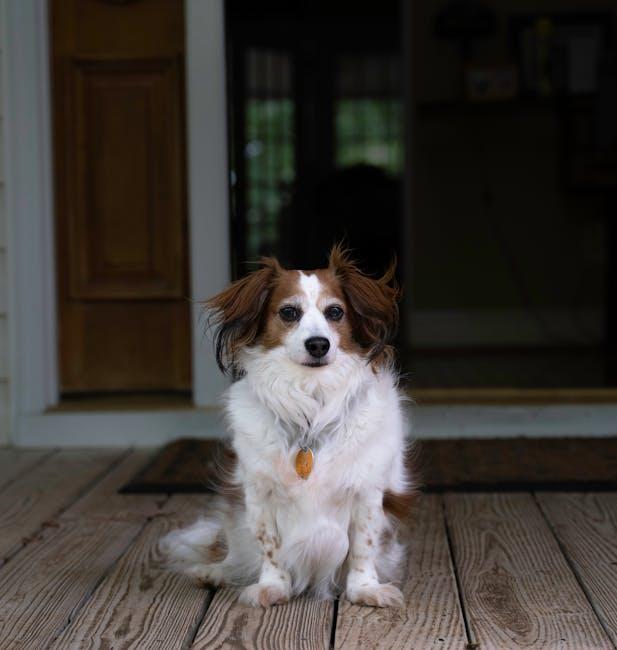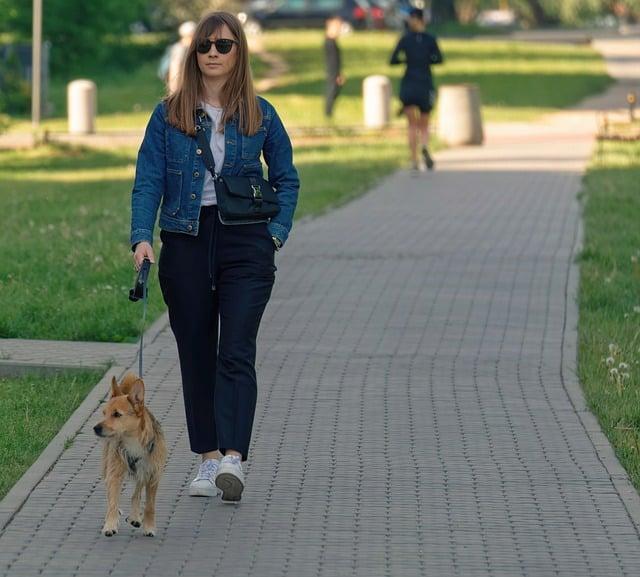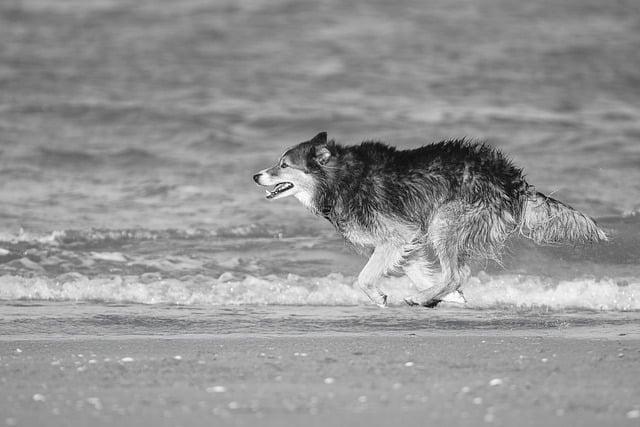Once upon a time in a bustling neighborhood, a gentle giant named Max roamed the streets. A Great Dane with a heart as big as his stature, Max was known for his friendly demeanor. Children would flock to him, and even the shyest of adults found comfort in his warm, soulful eyes. His owner often said, “Max believes everyone is a friend he hasn’t met yet.” If you’re seeking a large dog that embodies kindness and loyalty, look no further than the Great Dane. With Max as your companion, every day becomes an adventure filled with love and laughter.
Contents
- Understanding the Temperament of Large Dog Breeds
- Top Large Dog Breeds Known for Their Friendly Nature
- Creating a Positive Environment for Your Friendly Giant
- Tips for Training and Socializing Your Large Dog for Optimal Friendliness
- Q&A
Understanding the Temperament of Large Dog Breeds
When considering large dog breeds, it’s essential to recognize that temperament can vary significantly among different breeds and individual dogs. Many large breeds are known for their gentle and friendly nature, making them excellent companions for families and individuals alike. Understanding the temperament of these breeds can help potential owners choose a dog that aligns with their lifestyle and expectations.
Some of the most amiable large dog breeds include:
- Golden Retriever: Renowned for their friendly disposition, Golden Retrievers are often described as loyal and eager to please. Their playful nature makes them great with children and other pets.
- Labrador Retriever: Labs are famous for their sociable and outgoing personalities. They thrive on human interaction and are known for their affectionate behavior, making them ideal family pets.
- Bernese Mountain Dog: This breed is not only striking in appearance but also possesses a calm and gentle temperament. They are known for their patience and love for children, making them wonderful companions.
- Newfoundland: Often referred to as “gentle giants,” Newfoundlands are incredibly friendly and protective. Their nurturing nature makes them excellent family dogs, especially in homes with young children.
In addition to breed characteristics, individual temperament can be influenced by factors such as socialization, training, and environment. Early socialization is crucial for large breeds, as it helps them develop into well-rounded adults. A well-socialized dog is more likely to exhibit friendly behavior towards strangers and other animals, reducing the likelihood of fear-based aggression.
Moreover, the bond between a dog and its owner plays a significant role in shaping temperament. Dogs that receive consistent training, positive reinforcement, and plenty of love tend to be more confident and well-adjusted. Engaging in regular activities such as walks, playtime, and training sessions can further enhance a large dog’s friendly demeanor, ensuring they remain a cherished member of the family.
Top Large Dog Breeds Known for Their Friendly Nature
When it comes to large dog breeds, many are not only impressive in size but also in temperament. These gentle giants are known for their friendly and affectionate nature, making them ideal companions for families and individuals alike. Among the most notable breeds are:
- Golden Retriever: Renowned for their friendly disposition, Golden Retrievers are eager to please and thrive on human interaction. Their playful nature and loyalty make them excellent family pets.
- Labrador Retriever: Labradors are famous for their outgoing and sociable personalities. They are incredibly adaptable and enjoy being part of family activities, making them one of the most beloved breeds.
- Newfoundland: Known for their gentle temperament, Newfoundlands are often referred to as “gentle giants.” Their calm demeanor and protective instincts make them great companions for children.
- Bernese Mountain Dog: With their affectionate nature and striking appearance, Bernese Mountain Dogs are known for their loyalty and love for their families. They are particularly good with kids and other pets.
These breeds not only excel in friendliness but also exhibit remarkable intelligence and trainability. Their eagerness to learn and bond with their human counterparts makes them suitable for various roles, from therapy dogs to family protectors. The friendly nature of these large breeds often translates into a strong desire to be involved in family activities, ensuring they remain an integral part of the household.
Moreover, the socialization of these breeds from a young age plays a crucial role in their development. Regular interaction with people and other animals helps reinforce their friendly demeanor, making them well-adjusted companions. Owners often find that these dogs thrive on companionship, and their loving nature can help create a warm and welcoming home environment.
Choosing a large dog breed known for its friendly nature can significantly enhance your quality of life. These dogs not only provide companionship but also encourage an active lifestyle, as they require regular exercise and social interaction. With their loving personalities and gentle hearts, these breeds are sure to bring joy and warmth to any home, making them the perfect choice for those seeking a loyal and friendly canine companion.
Creating a Positive Environment for Your Friendly Giant
Creating a nurturing atmosphere for your large canine companion is essential for their happiness and well-being. A positive environment not only enhances their social skills but also fosters a strong bond between you and your pet. To achieve this, consider implementing the following strategies:
- Space to Roam: Ensure your home has ample space for your dog to move around comfortably. Large breeds thrive in environments where they can stretch their legs and explore. A spacious backyard or nearby park can provide the perfect setting for exercise and play.
- Safe Zones: Designate specific areas in your home where your dog can retreat to feel secure. This could be a cozy corner with their bed or a quiet room where they can relax away from the hustle and bustle of daily life.
- Positive Reinforcement: Use treats, praise, and affection to encourage good behavior. Reinforcing positive actions helps your dog understand what is expected of them and builds their confidence.
- Socialization Opportunities: Regularly expose your dog to different environments, people, and other animals. This not only helps them become more adaptable but also reduces anxiety and fearfulness in new situations.
Engaging your friendly giant in various activities can significantly enhance their quality of life. Incorporating playtime, training sessions, and outdoor adventures into your routine will keep them mentally stimulated and physically active. Consider the following activities:
- Interactive Games: Games like fetch or tug-of-war can be great for bonding and exercise. These activities allow your dog to use their natural instincts while having fun with you.
- Training Classes: Enroll your dog in obedience or agility classes. This not only teaches them essential skills but also provides a structured environment for socialization with other dogs and people.
- Daily Walks: Make it a habit to take your dog for daily walks. This simple activity can help them expend energy and explore their surroundings, contributing to their overall happiness.
- Dog-Friendly Outings: Plan trips to dog parks or pet-friendly cafes. These outings can be exciting for your dog and provide opportunities for them to interact with other friendly giants.
Maintaining a clean and organized living space is crucial for your dog’s health and comfort. Regularly cleaning their bedding, toys, and feeding areas will help prevent any potential health issues. Additionally, consider the following tips:
- Routine Grooming: Regular grooming not only keeps your dog looking their best but also allows you to check for any skin issues or parasites. Establish a grooming routine that suits your dog’s breed and coat type.
- Healthy Diet: Provide a balanced diet tailored to your dog’s size and energy level. Consult your veterinarian for recommendations on the best food options to keep your friendly giant in optimal health.
- Regular Vet Visits: Schedule routine check-ups with your veterinarian to monitor your dog’s health. Preventive care is key to ensuring a long and happy life for your large breed companion.
- Safe Environment: Remove any hazards from your home that could pose a risk to your dog. Ensure that toxic plants, chemicals, and small objects are out of reach to create a safe haven for your furry friend.
Ultimately, fostering a positive environment for your large dog is about understanding their needs and providing them with love, care, and attention. By creating a space where they feel secure and engaged, you will not only enhance their quality of life but also strengthen the bond you share. Remember, a happy dog leads to a happy home!
Tips for Training and Socializing Your Large Dog for Optimal Friendliness
Training and socializing your large dog is essential for fostering a friendly demeanor and ensuring they interact well with people and other animals. Start with **basic obedience training** to establish a strong foundation. Commands like sit, stay, and come not only enhance safety but also build a bond of trust between you and your dog. Consistency is key; use positive reinforcement techniques such as treats and praise to encourage good behavior. This approach not only makes training enjoyable but also reinforces your dog’s desire to please you.
Socialization is equally important in developing a friendly disposition. Introduce your large dog to a variety of environments, people, and other pets from a young age. This exposure helps them become accustomed to different sights, sounds, and smells, reducing anxiety and fearfulness. Consider the following strategies for effective socialization:
- Arrange playdates with other friendly dogs.
- Visit dog parks during off-peak hours to allow for gradual introductions.
- Enroll in group training classes to enhance social skills.
- Take your dog on outings to pet-friendly stores or outdoor cafes.
While socializing, always monitor your dog’s body language. Signs of stress or discomfort, such as tail tucking or excessive barking, indicate that you should remove them from the situation and try again later. Gradually increasing the level of exposure will help your dog build confidence. Remember, the goal is to create positive experiences that reinforce their friendly nature, so be patient and encouraging throughout the process.
incorporate regular exercise into your dog’s routine. A well-exercised dog is often a happier and more relaxed companion, making them more open to social interactions. Engage in activities such as walking, running, or playing fetch to burn off excess energy. Additionally, consider incorporating mental stimulation through puzzle toys or training games. This combination of physical and mental exercise will not only improve your dog’s overall behavior but also enhance their friendliness, making them a joy to be around.
Q&A
-
What is the friendliest large dog breed?
The Labrador Retriever is often considered the friendliest large dog breed. Known for their gentle temperament and sociable nature, Labs are great with families, children, and other pets, making them an ideal choice for a loving companion.
-
Are large dogs good with children?
Yes, many large dog breeds are excellent with children. Breeds like the Golden Retriever and Bernese Mountain Dog are known for their patience and protective instincts, ensuring a safe and enjoyable environment for kids to play and grow.
-
How do I choose a friendly large dog?
When selecting a friendly large dog, consider breeds known for their temperament, such as the Newfoundland or the Irish Setter. Additionally, spend time with the dog before adoption to assess their behavior and compatibility with your lifestyle.
-
Do friendly large dogs require special training?
While friendly large dogs are generally well-natured, they still benefit from basic obedience training and socialization. Early training helps reinforce good behavior and ensures they interact positively with people and other animals.
choosing the friendliest large dog can enrich your life with companionship and joy. Breeds like the Labrador Retriever and Golden Retriever not only offer loyalty but also a gentle demeanor, making them perfect family pets. Embrace the love a large dog can bring!

大家好,我是彼得潘,專業的手法身體治療師。我喜歡探索和研究各種主題,並透過與人工智慧的合作分享專業、實用、有趣的文章。我們定期進行人工審核,以確保內容的準確性。如果您發現文章中有任何不準確的地方,請隨時與我們聯繫,我們會及時糾正。您可以透過 [email protected] 與我們聯繫。



